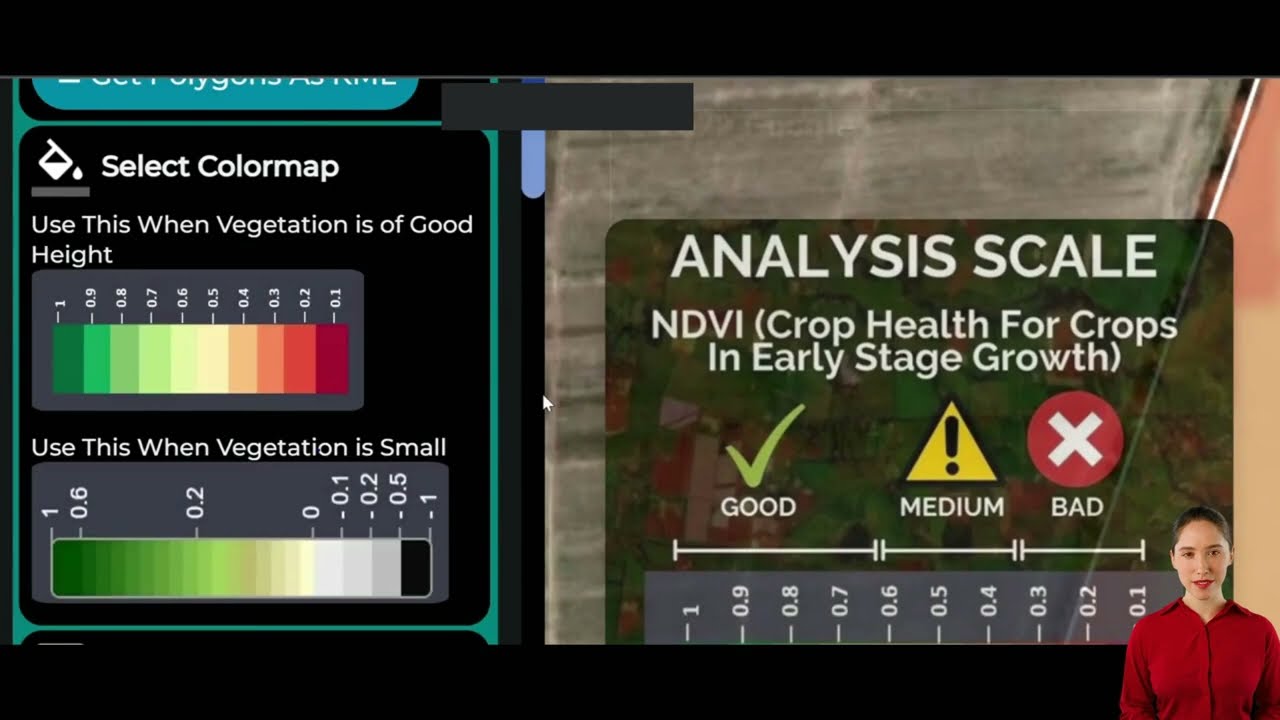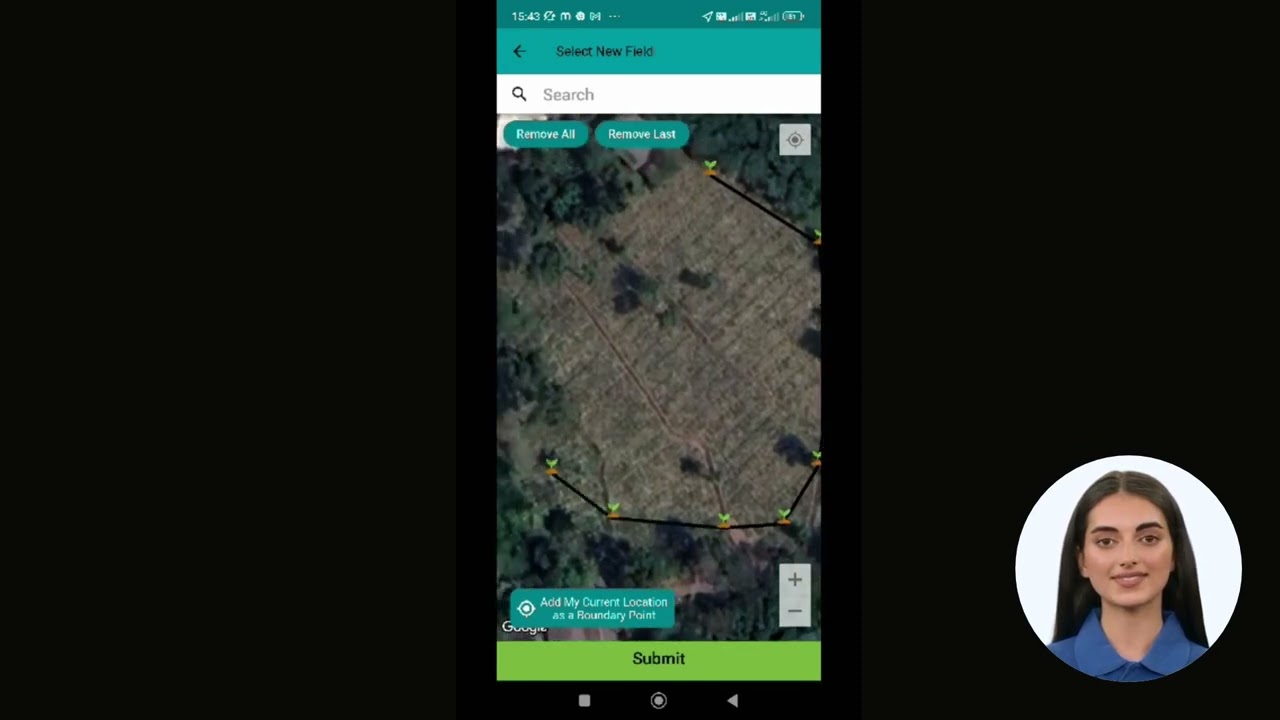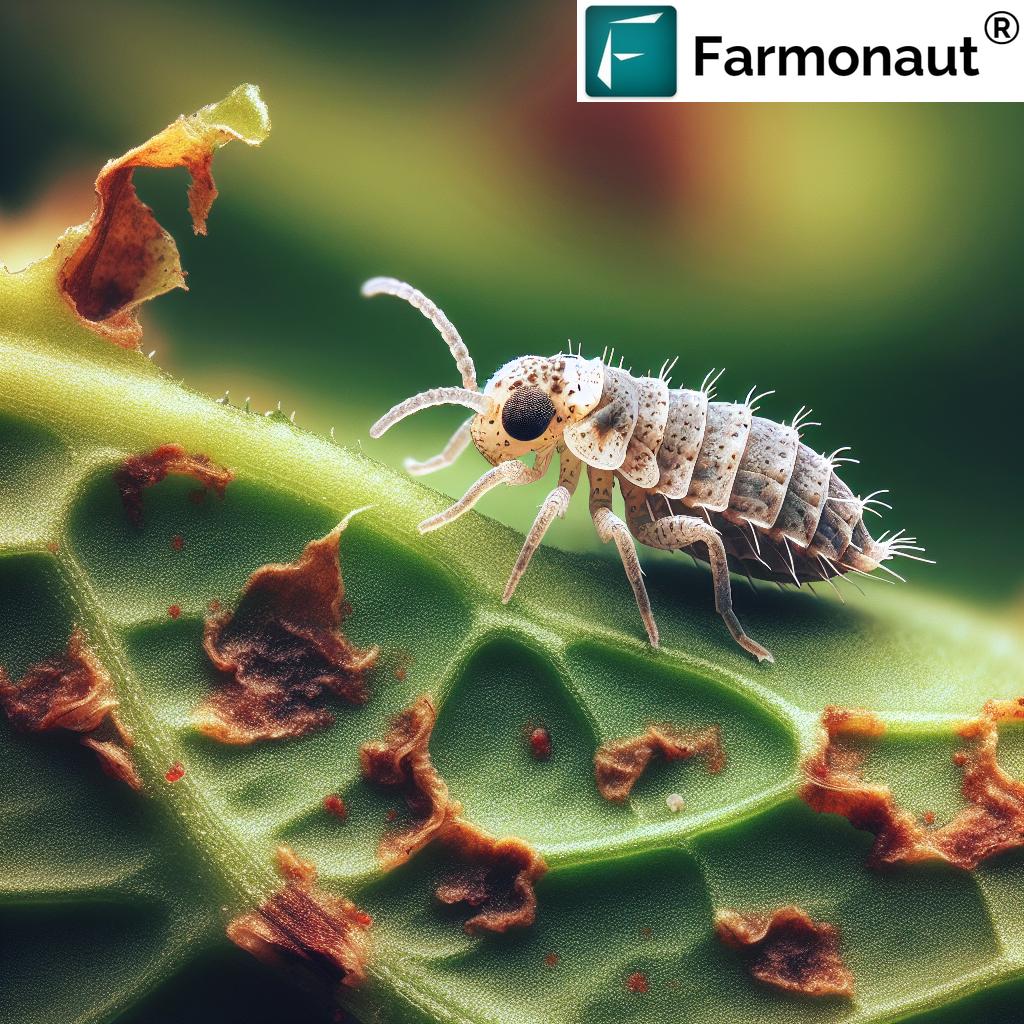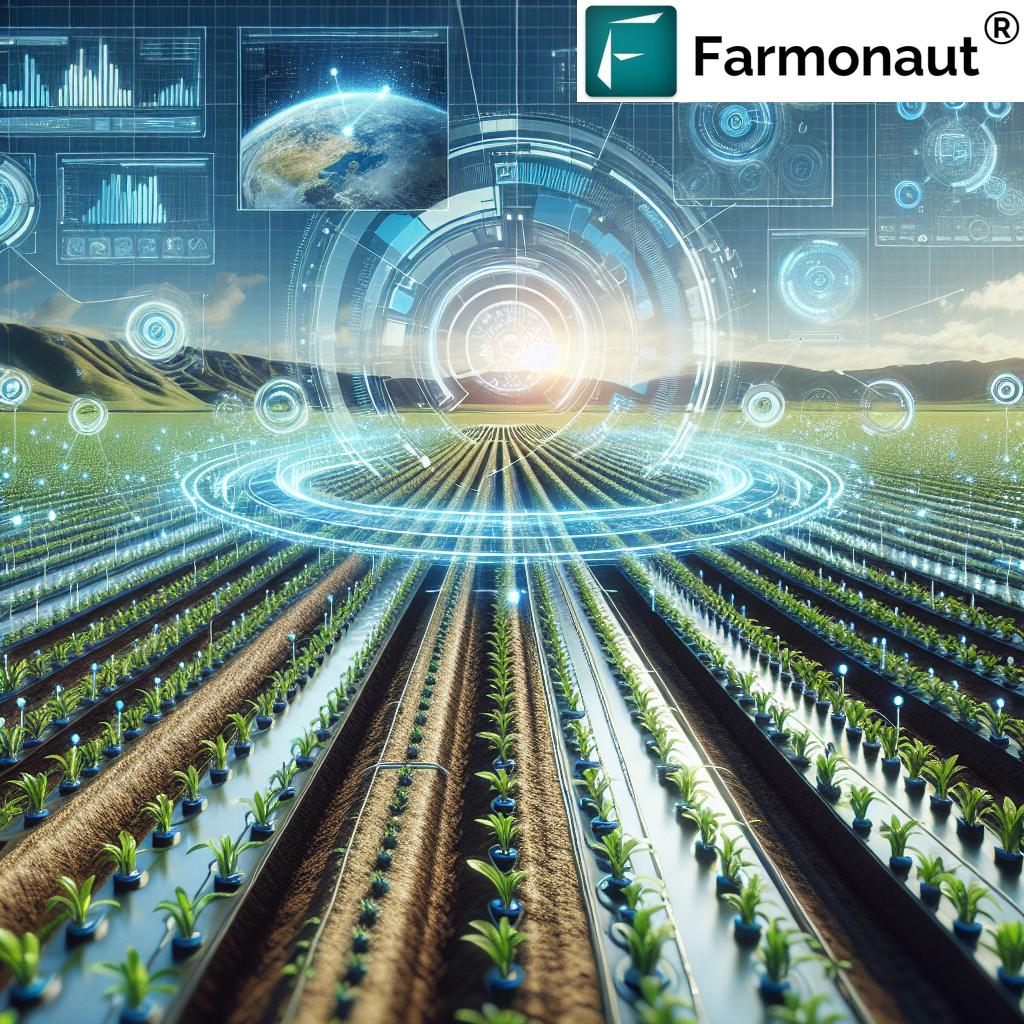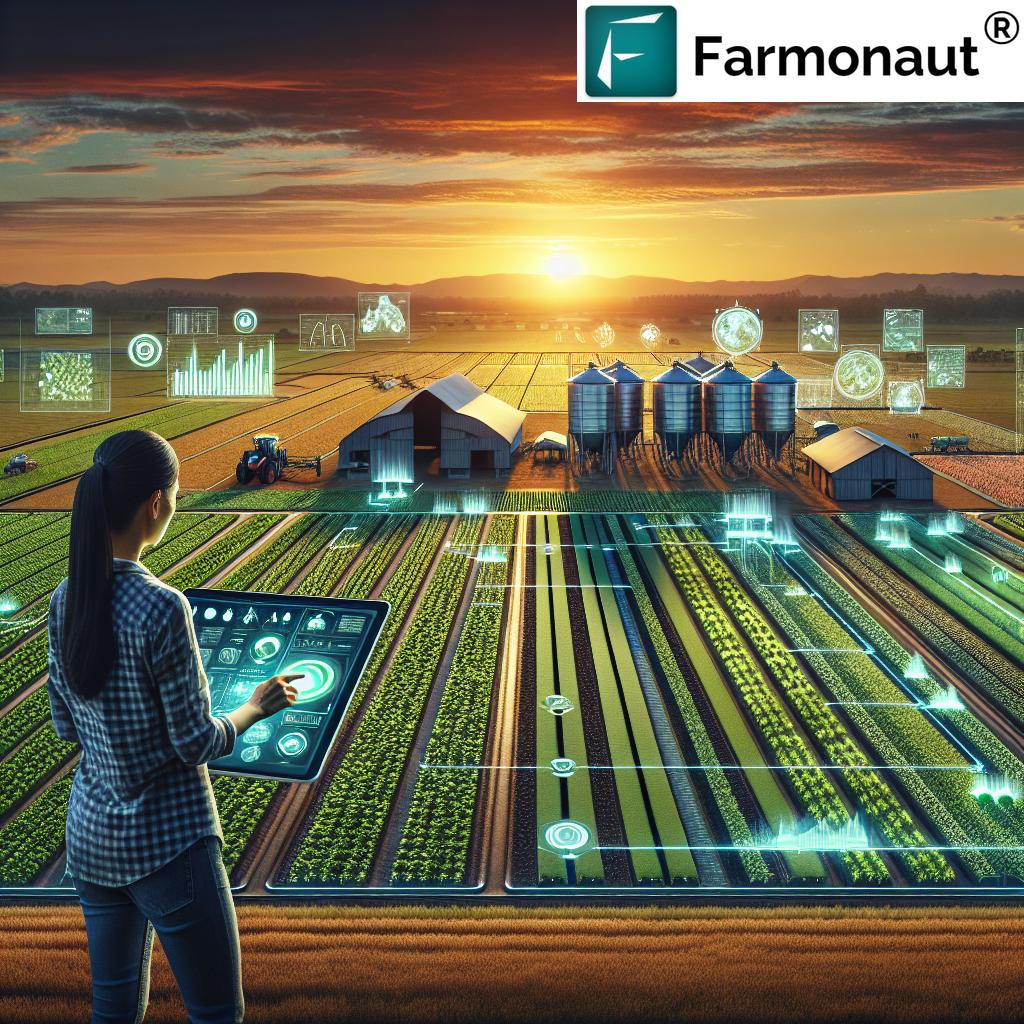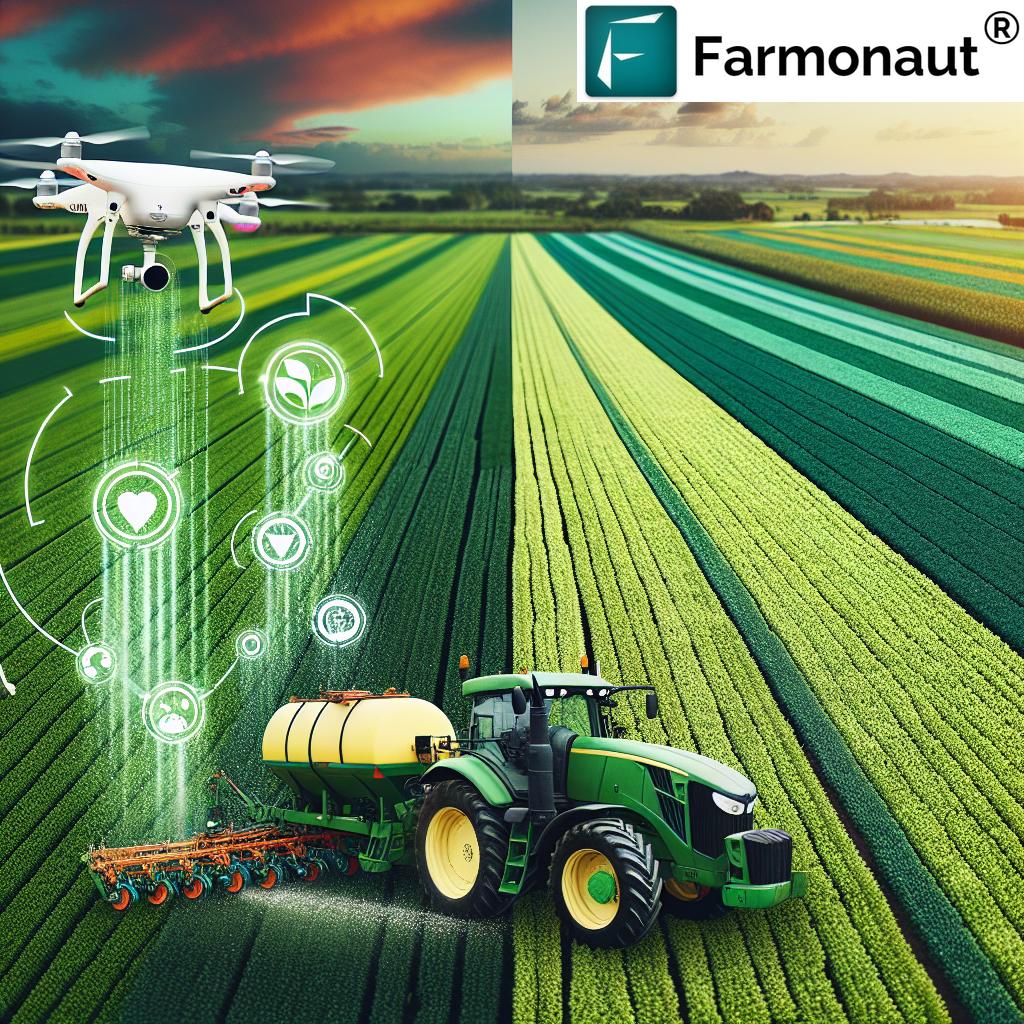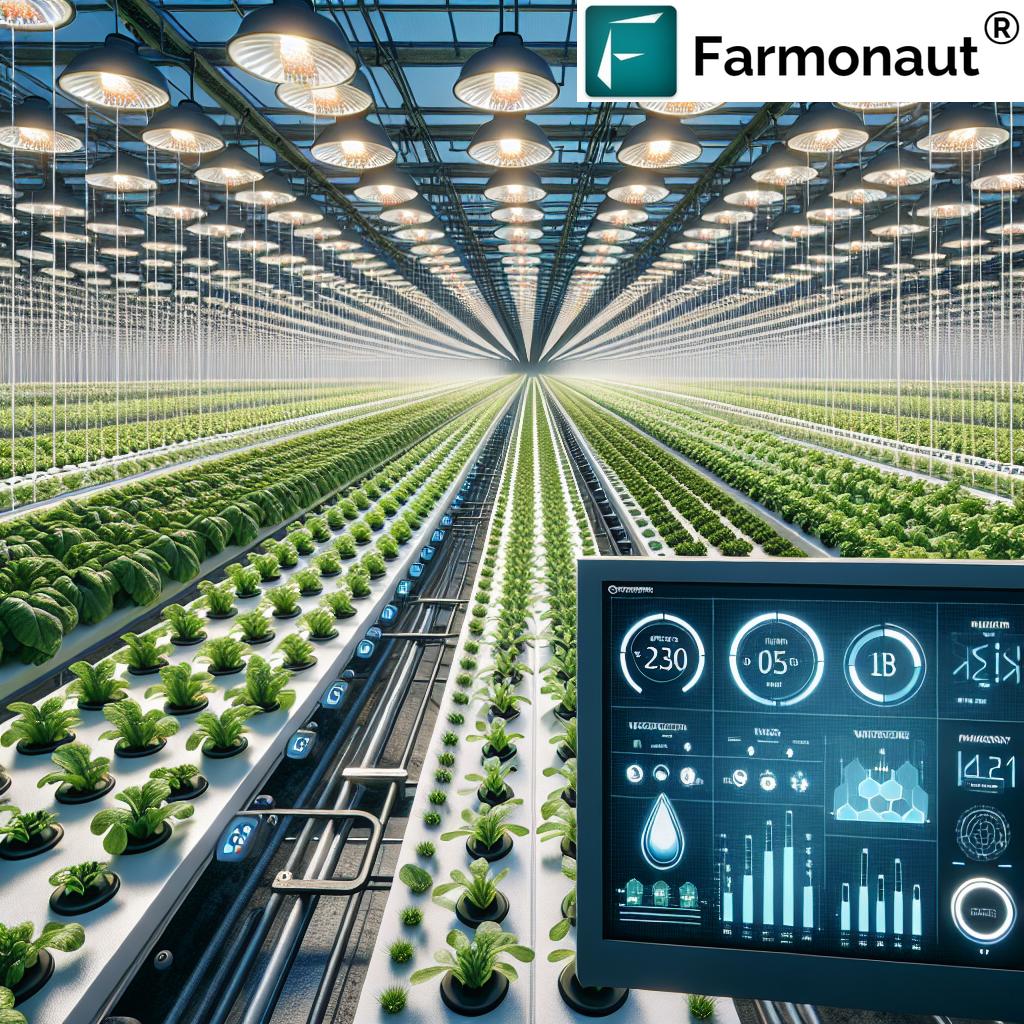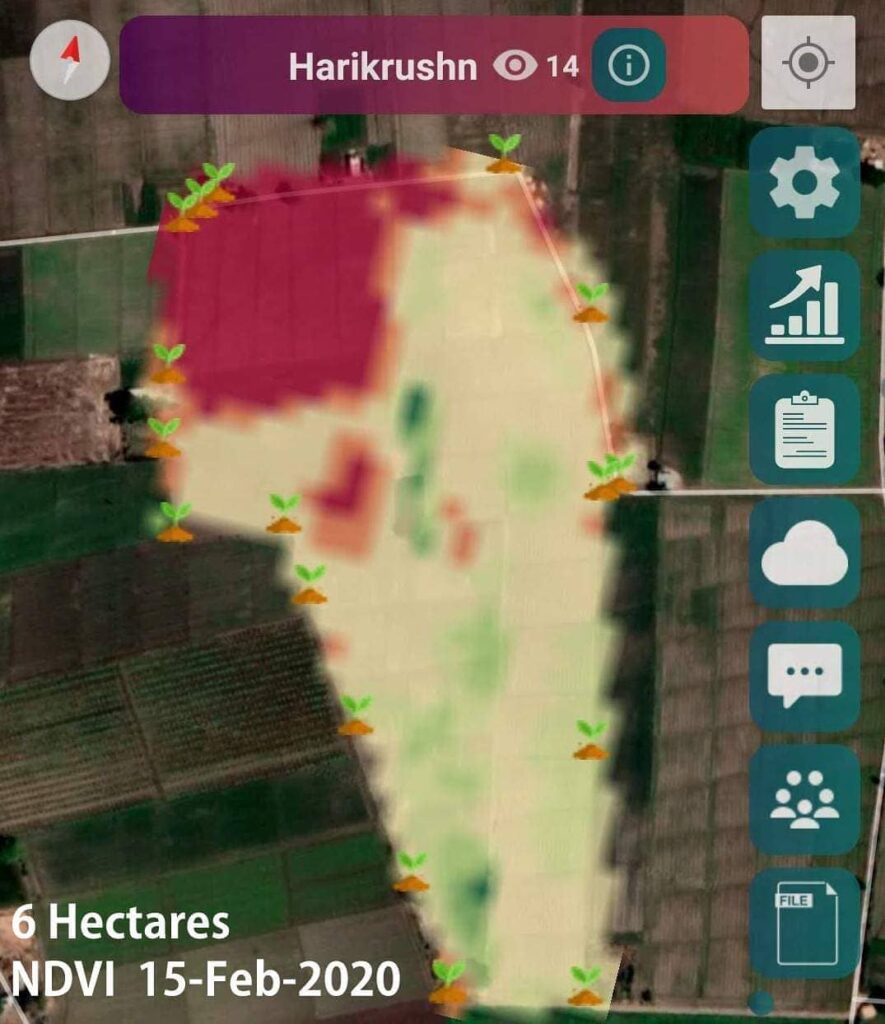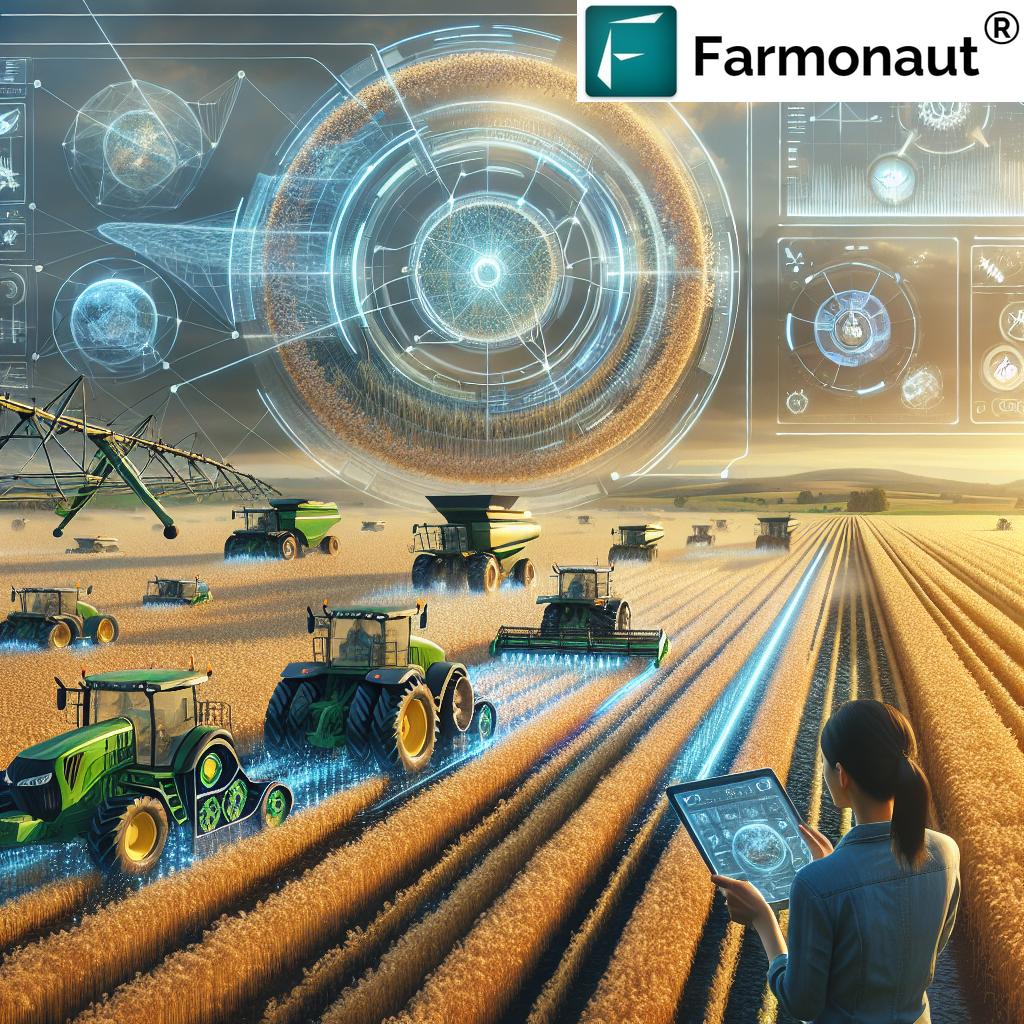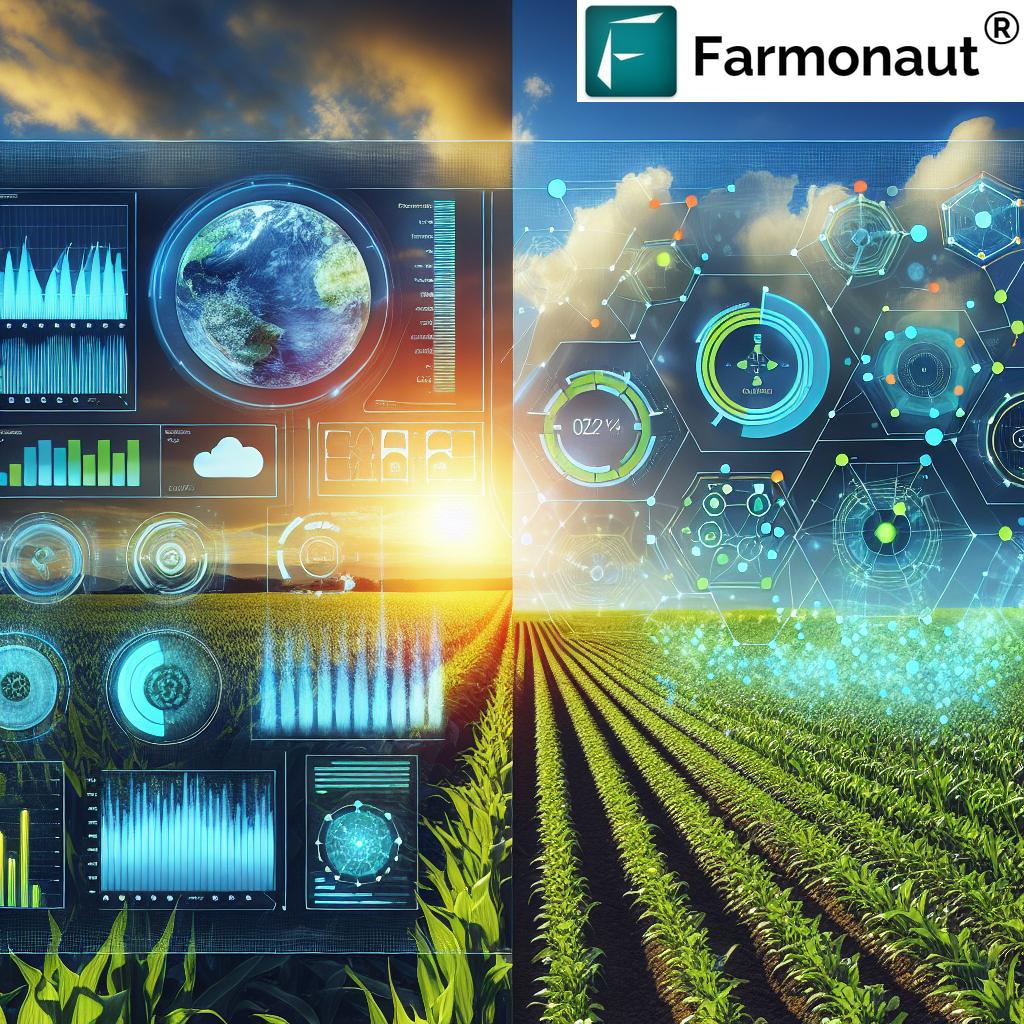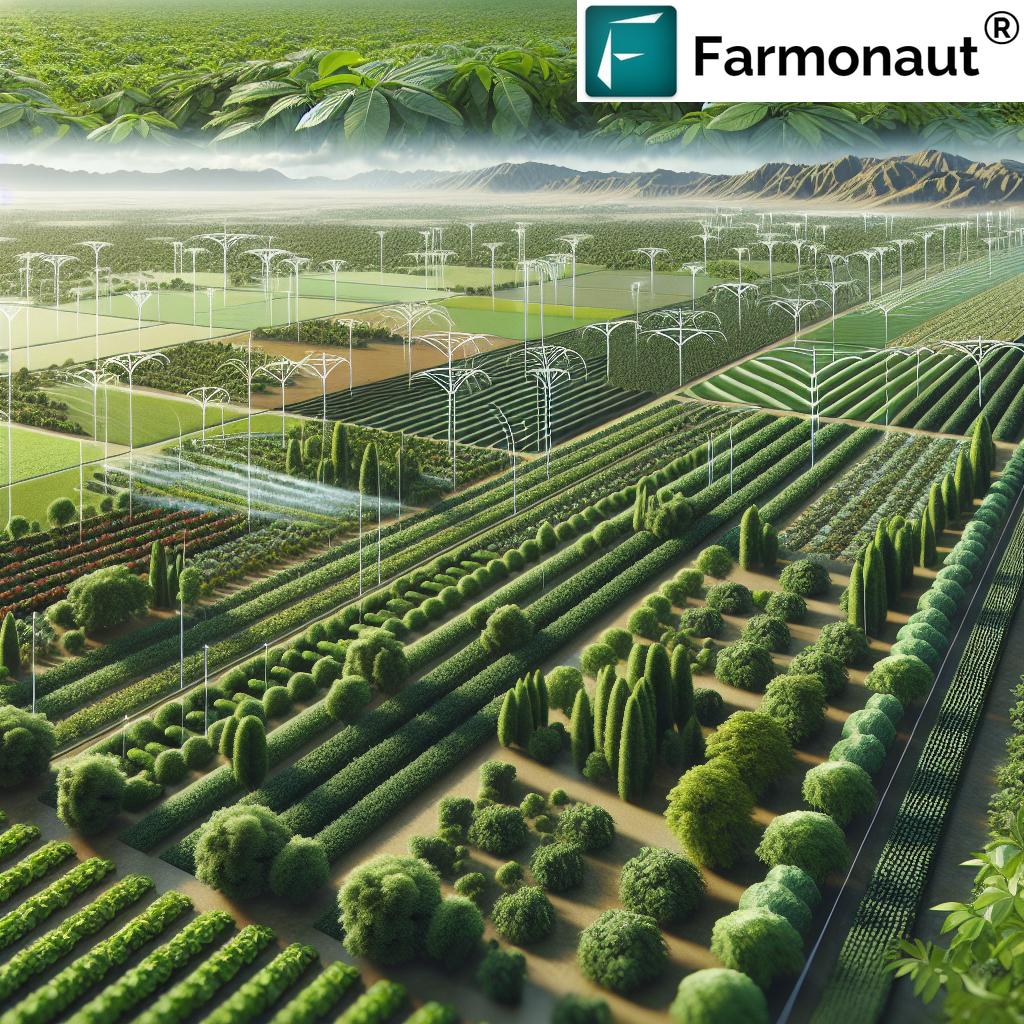Revolutionize Your Farm: Top Precision Farming Equipment and GPS Technology for Sustainable Agriculture
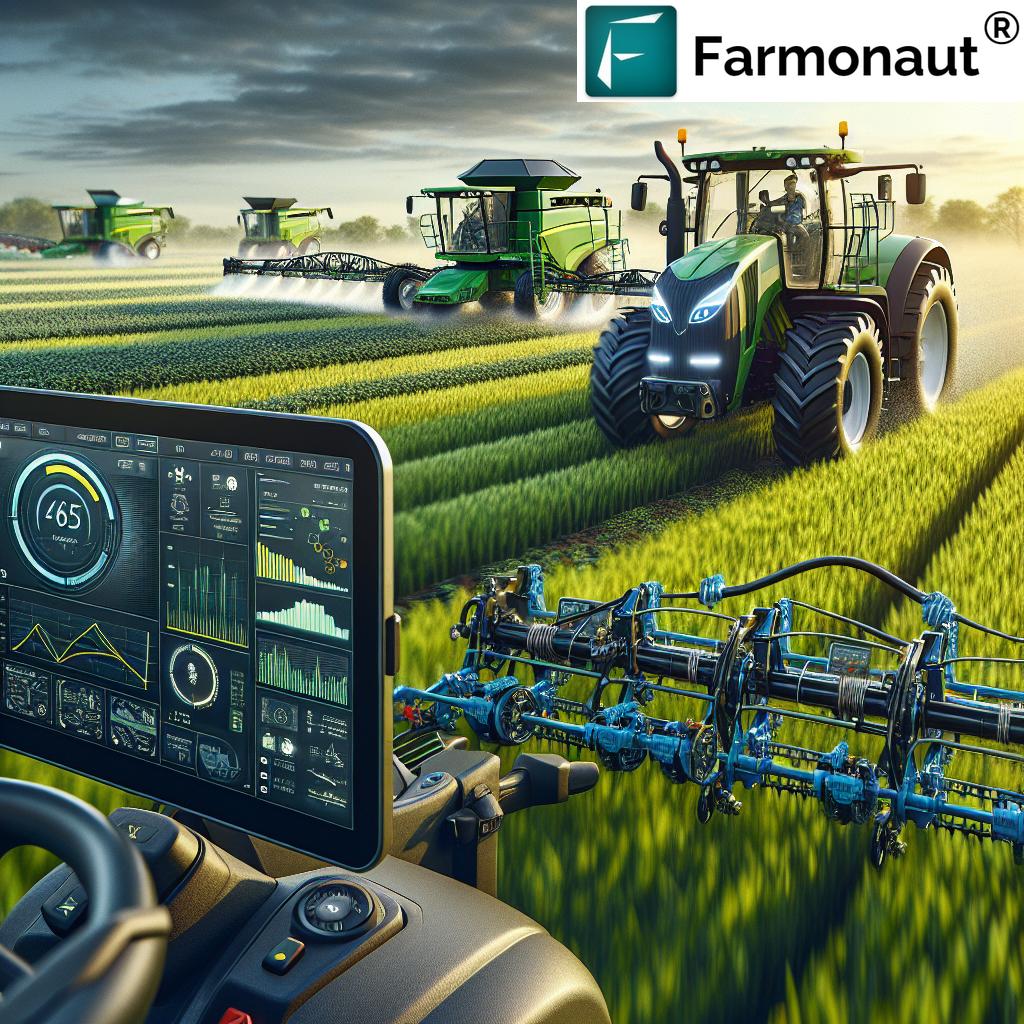
“GPS-guided tractors can reduce fuel consumption by up to 15% and increase field efficiency by 10-15%.”
Welcome to our comprehensive guide on revolutionizing your farm with top precision farming equipment and GPS technology for sustainable agriculture. In this blog post, we’ll explore the latest trends in agricultural machinery for sale, innovative farm irrigation systems, and how modern tools are transforming the industry. Whether you’re an established farmer looking to upgrade your equipment or a newcomer interested in sustainable farming practices, we’ve got you covered.
The Rise of Precision Farming Equipment
Precision farming has become a game-changer in the agricultural sector, allowing farmers to optimize their operations and increase productivity while minimizing environmental impact. At the heart of this revolution is the integration of GPS technology in agriculture, which has paved the way for a new era of smart farming practices.
Some key benefits of precision farming equipment include:
- Improved accuracy in planting and harvesting
- Reduced input costs through targeted application of fertilizers and pesticides
- Enhanced crop yield and quality
- Minimized environmental impact
- Better resource management
As we delve deeper into the world of precision farming, let’s explore some of the top equipment and technologies that are revolutionizing the agricultural landscape.
GPS Technology: The Backbone of Precision Agriculture
GPS technology in agriculture has become an indispensable tool for modern farmers. It forms the foundation of many precision farming techniques, enabling accurate positioning and navigation for various farm operations.
Here are some ways GPS technology is transforming agriculture:
- Auto-steering systems: These allow tractors and other farm vehicles to navigate fields with centimeter-level accuracy, reducing overlap and improving efficiency.
- Variable rate application: GPS-guided systems can adjust the application of seeds, fertilizers, and pesticides based on precise field mapping and soil data.
- Yield mapping: GPS-enabled combines can create detailed yield maps, helping farmers identify areas of high and low productivity within their fields.
- Field boundary mapping: Accurate field boundaries can be established using GPS technology, aiding in land management and record-keeping.
By incorporating GPS technology into your farming operations, you can significantly improve your farm’s efficiency and productivity. Many of the latest tractors and implements for sale come equipped with GPS capabilities, making it easier than ever to adopt this technology.
Innovative Farm Irrigation Systems
Water management is a critical aspect of sustainable agriculture, and modern farm irrigation systems are at the forefront of water conservation efforts. These systems leverage precision farming techniques to deliver water exactly where and when it’s needed, reducing waste and improving crop health.
“Precision farming techniques can reduce water usage in irrigation systems by up to 30% compared to traditional methods.”
Some cutting-edge irrigation technologies include:
- Drip irrigation: Delivers water directly to plant roots, minimizing evaporation and runoff.
- Smart sprinklers: Use weather data and soil moisture sensors to optimize watering schedules.
- Subsurface drip irrigation: Applies water below the soil surface, reducing evaporation even further.
- Precision mobile drip irrigation: Combines the efficiency of drip irrigation with the flexibility of center pivot systems.
Investing in efficient farm irrigation systems not only conserves water but also leads to healthier crops and reduced energy costs. When considering agricultural machinery for sale, look for irrigation equipment that incorporates these advanced technologies.
Drones and Remote Sensing in Agriculture
Drones have become an invaluable tool in precision agriculture, offering farmers a bird’s-eye view of their fields and providing crucial data for decision-making. These unmanned aerial vehicles (UAVs) equipped with various sensors can perform a wide range of tasks:
- Crop health monitoring
- Pest and disease detection
- Soil analysis
- Irrigation assessment
- Yield estimation
By integrating drone technology with other precision farming equipment, farmers can gain unprecedented insights into their operations and make data-driven decisions to optimize crop management.
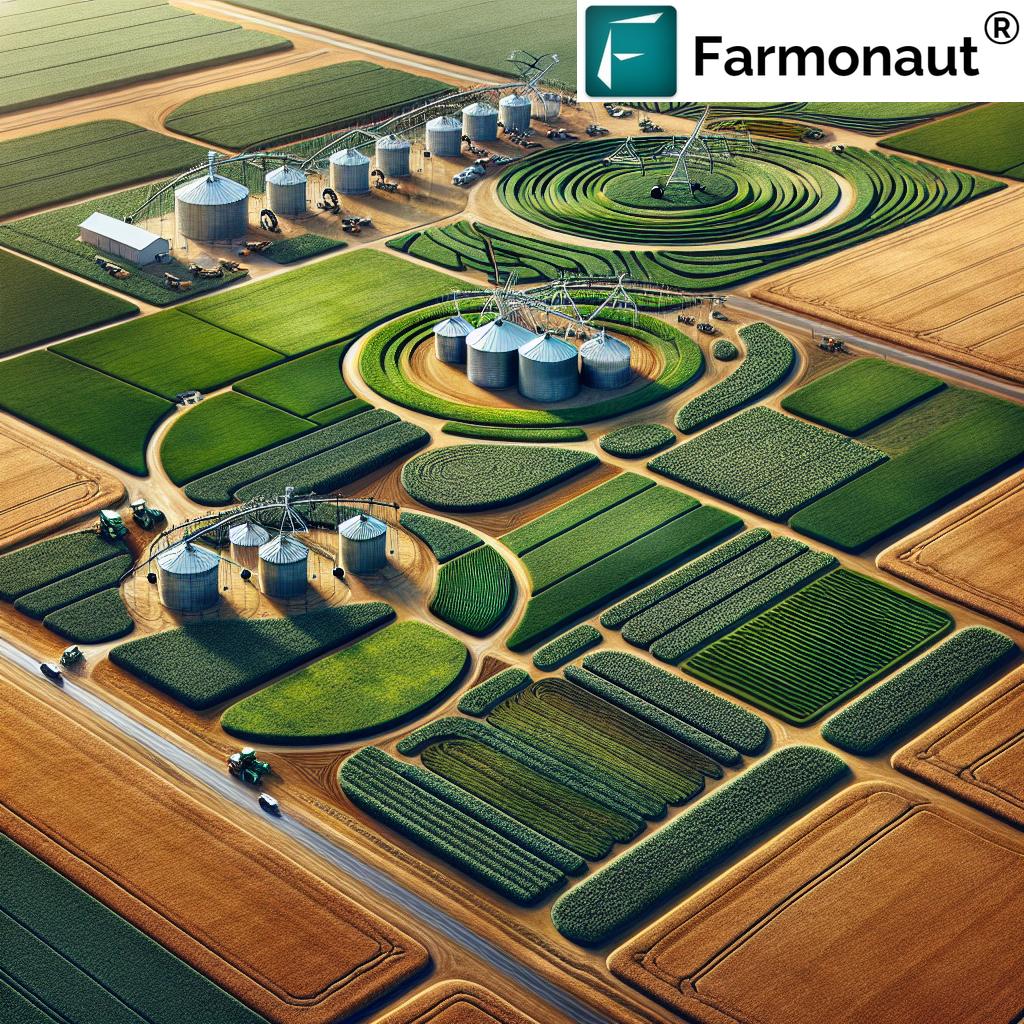
Silage and Forage Management
Efficient silage and forage management is crucial for livestock farmers and those involved in the production of animal feed. Modern precision farming equipment has revolutionized this aspect of agriculture, offering solutions for improved harvesting, storage, and feed quality.
Key technologies in silage and forage management include:
- Precision forage harvesters: These machines use GPS guidance and yield monitoring to optimize cutting and chopping operations.
- Automated baling systems: Improve efficiency and consistency in bale production.
- Silage monitoring systems: Use sensors to track temperature and moisture levels in silage pits, ensuring optimal fermentation.
- Near-infrared (NIR) spectroscopy: Allows for real-time analysis of forage quality during harvesting.
By investing in these technologies, farmers can improve the quality of their silage and forage, leading to better animal nutrition and increased profitability.
Crop Storage Solutions
Proper crop storage is essential for maintaining quality and reducing post-harvest losses. Modern crop storage solutions incorporate advanced technologies to create optimal conditions for long-term storage.
Some innovative crop storage technologies include:
- Automated grain monitoring systems: Use sensors to track temperature and moisture levels in grain bins.
- Controlled atmosphere storage: Regulates oxygen, carbon dioxide, and nitrogen levels to extend the shelf life of fruits and vegetables.
- Smart ventilation systems: Automatically adjust airflow based on outside conditions and crop requirements.
- Robotic grain sampling: Ensures accurate quality assessment without the need for manual sampling.
When considering agricultural machinery for sale, don’t overlook the importance of modern storage equipment in your overall farm management strategy.
Sustainable Farming Practices
Sustainable farming practices are becoming increasingly important as we face challenges such as climate change and resource scarcity. Precision farming equipment plays a crucial role in implementing these practices, allowing farmers to minimize their environmental impact while maintaining productivity.
Some sustainable farming practices enabled by modern technology include:
- Conservation tillage: Reduces soil disturbance and erosion.
- Precision nutrient management: Applies fertilizers only where and when needed, reducing runoff and improving soil health.
- Integrated pest management: Uses data from sensors and drones to apply pesticides more precisely and reduce overall usage.
- Cover cropping: Improves soil health and reduces erosion between main crop seasons.
By adopting these practices and investing in the right precision farming equipment, you can ensure the long-term sustainability of your farm while potentially reducing input costs.
Choosing the Right Tractors and Implements
Selecting the right tractors and implements is crucial for maximizing the benefits of precision farming. When looking at agricultural machinery for sale, consider the following factors:
- Compatibility with GPS systems: Ensure that the equipment can integrate with your existing or planned GPS technology.
- Power and size: Match the tractor’s power to your farm’s needs and the implements you plan to use.
- Fuel efficiency: Look for models with advanced engine technology for better fuel economy.
- Comfort and ergonomics: Consider the operator’s comfort for long working hours.
- Smart features: Many modern tractors come with built-in precision farming capabilities.
Whether you’re considering new or used tractors and implements, make sure they align with your precision farming goals and can support the latest technologies.
Farm Equipment Rentals: A Flexible Option
For farmers who want to try out new precision farming equipment without making a significant investment, farm equipment rentals can be an excellent option. Renting allows you to:
- Test different types of equipment before purchasing
- Access specialized machinery for seasonal needs
- Reduce upfront costs and maintenance responsibilities
- Stay up-to-date with the latest technology without frequent upgrades
Many equipment dealers offer rental options for a wide range of agricultural machinery, from tractors and implements to specialized precision farming tools.
Agricultural Land for Sale: Considerations for Precision Farming
If you’re in the market for agricultural land, it’s important to consider how well the property can support precision farming practices. When evaluating agricultural land for sale, keep these factors in mind:
- Topography: Gently sloping or flat land is generally better suited for precision farming equipment.
- Soil quality: Look for land with consistent soil types that respond well to precision management.
- Field size and shape: Regular-shaped fields are easier to manage with GPS-guided equipment.
- Connectivity: Ensure the property has good cellular or internet coverage for data transmission.
- Water resources: Consider the availability and quality of water for precision irrigation systems.
By choosing land that’s well-suited for precision farming, you’ll be better positioned to implement advanced technologies and maximize your farm’s potential.
The Role of Farmonaut in Precision Agriculture
As we explore the world of precision farming equipment and GPS technology, it’s worth highlighting the innovative solutions offered by Farmonaut. This agricultural technology company provides advanced, satellite-based farm management solutions that can complement and enhance your precision farming efforts.
Farmonaut’s platform includes:
- Real-time crop health monitoring using satellite imagery
- AI-based advisory systems for personalized farm management
- Blockchain-based traceability for supply chain transparency
- Resource management tools for optimizing farm operations
By integrating Farmonaut’s technology with your precision farming equipment, you can gain even deeper insights into your farm’s performance and make more informed decisions.
Explore Farmonaut’s offerings:
Precision Farming Equipment Comparison
| Equipment Type | Primary Function | Key Features | Sustainability Benefits | Estimated Cost Range | Suitable Farm Types |
|---|---|---|---|---|---|
| GPS-guided tractors | Field operations | Auto-steering, variable rate application | Reduced fuel consumption, minimized soil compaction | $100,000 – $500,000 | Large-scale crop farms |
| Precision sprayers | Pest and disease control | Variable rate application, drift control | Reduced chemical usage, minimized environmental impact | $50,000 – $200,000 | All crop farms |
| Soil sensors | Soil health monitoring | Real-time data, wireless connectivity | Optimized fertilizer use, improved soil management | $1,000 – $10,000 per sensor network | All farm types |
| Drones | Crop monitoring | Multispectral imaging, automated flight paths | Early pest detection, reduced chemical usage | $5,000 – $50,000 | Medium to large farms |
| Smart irrigation systems | Water management | Weather-based scheduling, soil moisture sensing | Water conservation, improved crop health | $10,000 – $100,000 per system | All irrigated farms |
Implementing Precision Farming: A Step-by-Step Guide
Transitioning to precision farming can seem daunting, but with the right approach, it can be a smooth and rewarding process. Here’s a step-by-step guide to help you implement precision farming techniques on your farm:
- Assess your current operations: Evaluate your farm’s current practices and identify areas where precision farming could make the biggest impact.
- Set clear goals: Define what you want to achieve with precision farming, such as reducing input costs or increasing yield.
- Start with soil mapping: Conduct detailed soil analysis to understand the variability across your fields.
- Invest in GPS technology: Begin with basic GPS guidance systems for your tractors and implements.
- Implement variable rate technology: Use your soil map data to apply inputs at variable rates across your fields.
- Adopt yield monitoring: Install yield monitors on your harvesting equipment to track productivity.
- Integrate data management systems: Use farm management software to collect and analyze data from various sources.
- Explore advanced technologies: Gradually incorporate more advanced precision farming equipment as you become comfortable with the basics.
- Continuously educate yourself: Stay informed about new technologies and best practices in precision agriculture.
- Monitor and adjust: Regularly review your precision farming practices and adjust your strategies based on the results.
Remember, implementing precision farming is an ongoing process. Start small, learn from your experiences, and gradually expand your use of technology as you see the benefits.
The Future of Precision Farming
As technology continues to advance, the future of precision farming looks incredibly promising. Some emerging trends to watch include:
- Artificial Intelligence (AI) and Machine Learning: These technologies will enable even more sophisticated data analysis and decision-making in farm management.
- Internet of Things (IoT): Increased connectivity between farm equipment and sensors will lead to more automated and responsive farming systems.
- Robotics: Autonomous robots for tasks like planting, weeding, and harvesting are becoming more advanced and practical.
- Vertical farming: Precision farming techniques are being adapted for indoor and urban farming environments.
- Blockchain in agriculture: This technology will enhance traceability and transparency in the food supply chain.
By staying informed about these trends and continuously adapting your farming practices, you can ensure that your farm remains competitive and sustainable in the years to come.
Conclusion
Revolutionizing your farm with top precision farming equipment and GPS technology is not just about adopting new gadgets – it’s about embracing a new way of farming that’s more efficient, sustainable, and productive. From GPS-guided tractors to advanced irrigation systems and innovative crop monitoring tools, the world of precision agriculture offers countless opportunities to improve your farm’s performance.
As you explore agricultural machinery for sale and consider implementing new technologies, remember that the key to success lies in choosing the right tools for your specific needs and gradually integrating them into your operations. Whether you’re managing grassland, cultivating crops, or running a vineyard, precision farming techniques can help you optimize your resources, reduce your environmental impact, and increase your yields.
By embracing sustainable farming practices and leveraging the power of data-driven decision-making, you’ll be well-positioned to face the challenges of modern agriculture and thrive in an ever-changing industry. The future of farming is precision-driven, and the time to start your precision agriculture journey is now.
FAQ Section
Q: What is precision farming?
A: Precision farming is an agricultural management concept that uses technology to observe, measure, and respond to variability in crops, fields, and animals. It involves using GPS technology, sensors, and data analytics to optimize farm operations and increase efficiency.
Q: How does GPS technology benefit agriculture?
A: GPS technology in agriculture enables accurate positioning and navigation for farm equipment, allowing for precise planting, spraying, and harvesting. It helps reduce overlap, save on inputs, and improve overall efficiency.
Q: Are precision farming techniques suitable for small farms?
A: Yes, many precision farming techniques can be adapted for small farms. While some technologies might require significant investment, others, like smartphone apps and basic soil sensors, can be implemented on a smaller scale.
Q: How can I get started with precision farming?
A: Start by assessing your current operations and identifying areas where precision techniques could make the biggest impact. Begin with basic GPS guidance systems and gradually incorporate more advanced technologies as you become comfortable with the concepts.
Q: What are the main challenges in adopting precision farming?
A: Common challenges include the initial cost of equipment, the learning curve associated with new technologies, and the need for reliable data management. However, many farmers find that the long-term benefits outweigh these initial hurdles.
For more information on precision farming and how Farmonaut can help you implement these technologies on your farm, visit our API page or check out our API Developer Docs.





